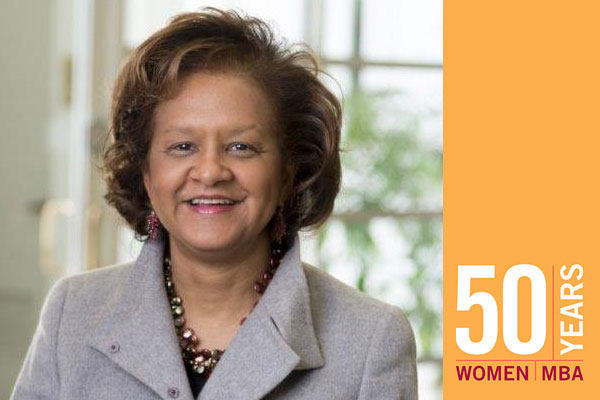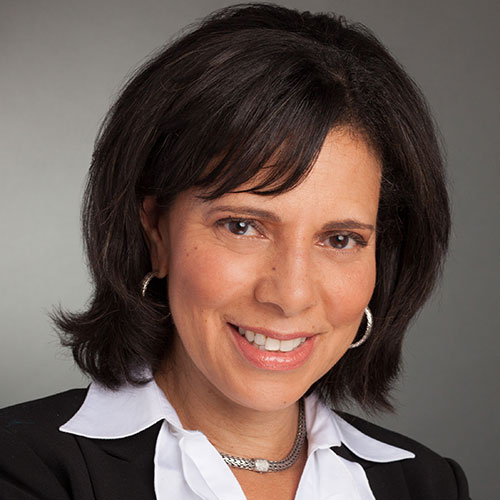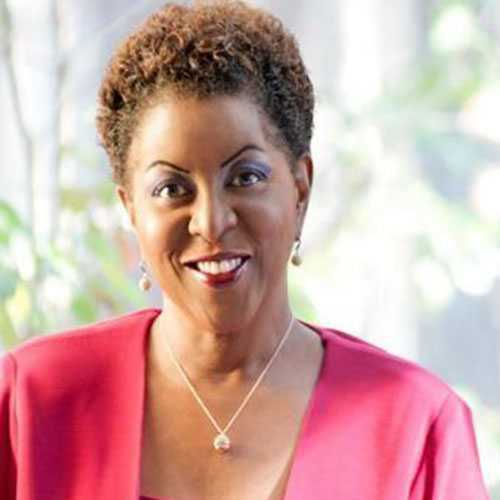
Deborah Wright
Biography
Deborah C. Wright is a board member of Citigroup Inc. (including membership of the Audit, Consumer Compliance and Ethics and Culture Committees), Time Warner Inc. (including chairmanship of the Audit and Finance Committee), and Voya Financial (including chairmanship of the Finance Committee). She is a member of the Executive Committee of the Board of Memorial Sloan-Kettering Cancer Center (including chairmanship of the Audit Committee).
What impact did HBS have on your life and the life of others?
Growing up, I was certain that I wanted to be a lawyer. When I was a teenager we moved from Bennettsville, South Carolina, to Dallas, Texas, where they were just beginning to desegregate schools—so my childhood was deeply impacted by many battles of the civil rights era that were fought in courts.
No one in my family was a businessperson; my mom was a public school teacher and my dad was a Baptist minister and college educator, so it wasn't part of my immediate frame of reference. But we knew many small business owners who were deeply invested in the community. And at Radcliffe College, where I met students from HBS, my lens widened considerably. Those conversations led me to audit some classes and an internship at Goldman Sachs, which convinced me to apply to HBS while I was at Harvard Law and enter the JD/MBA program. At the time, the number of black women at HBS and the other graduate schools at the University was small; as a result, most of us invested deeply in our relationships, creating bonds that remain to this day. But I also learned to go beyond my comfort zone and build relationships with people from around the world; doing that has been a critical part of learning how to be effective in large, complicated organizations, both public and private.
That leads to one piece of advice I'd give to any incoming student: The University is bigger than any one of its schools. Don't miss the opportunity to take full advantage of an incredibly dynamic environment—each school has professors who are world experts and robust speaker series where you can meet leaders from around the world. Take the opportunity to meet students from other disciplines, thereby building a broader base of friends and a deeper understanding of how the world really works. That knowledge is key to succeeding in the work world, which is significantly more diverse in the people you'll interact with and the challenges to be solved in order to succeed.
After HBS I began my career on Wall Street, but eventually realized I was more emotionally and intellectually connected to community-building work. That understanding led to a series of challenging, fulfilling positions, first with the New City Planning Commission and the New York City Housing Authority Board, and finally as Commissioner of the Department of Housing Preservation and Development. In 1996 I was named president and CEO of the Upper Manhattan Empowerment Zone Development Corporation and led development and execution of an investment strategy to expand Harlem's economy by investing $250 million to expand local businesses and cultural institutions. One of the biggest challenges of that work was changing expectations and perceptions of what was doable in Harlem. Until we did that, it was very difficult to get the investment and energy required to change not just the climate, but also the reality, of the everyday work and living environment.
Whatever career you choose, I encourage all African American professionals to invest in strengthening their business communities. The people who live there have made tremendous investments in helping us get to the Harvard Business Schools of this country. We have an obligation to transfer some of the skills we acquired for the benefit of others.

